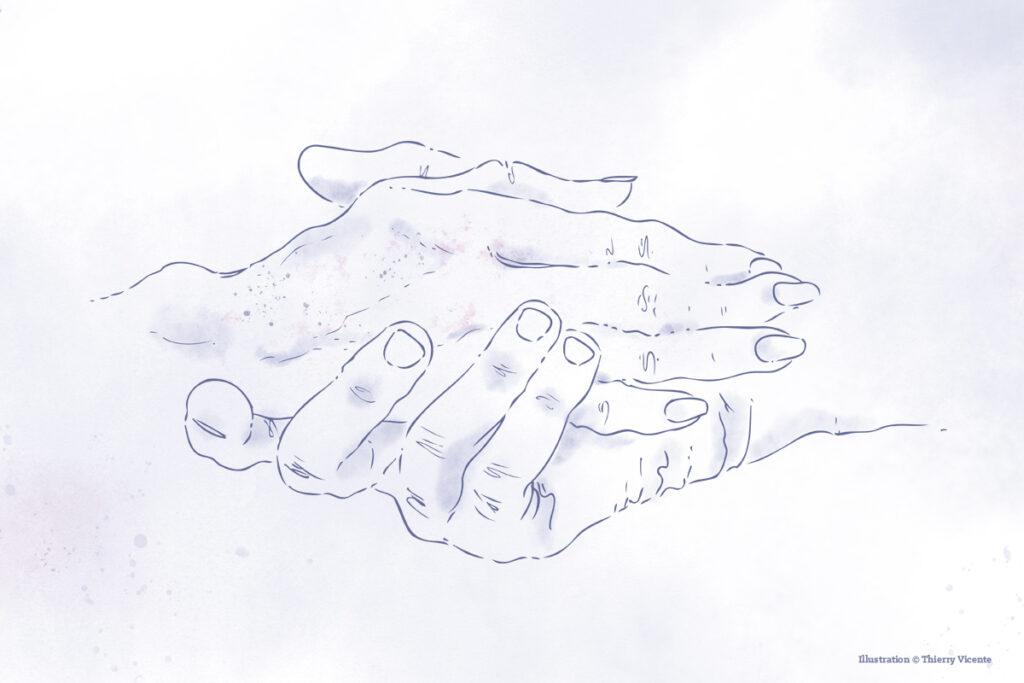[LUM#6] Easing the end of life
In a world marked by aging populations, alleviating suffering at the end of life is becoming a crucial issue. Over the past twenty years, the law has taken up the question, emphasizing the autonomy of the dying. When a moral dilemma arises, it is by looking at each person individually, in their own specific circumstances, that we can find the path to a peaceful end of life.

"The most terrifying of evils is nothing to us, since as long as we exist, death is not, and death is where we are no longer." If, as Epicurus said, death is nothing since we are no longer, we can only try to live a good life, until the very end.
For several decades now, death has been pushed aside. Intimately intertwined with life for centuries, it is now taboo and perceived as an intolerable rupture. At the same time, society has asked the law to take up the issue. At stake is the possibility of being kept alive longer than before. This is a relatively new final phase of existence, resulting from recent medical advances.
"Right to sleep"
In order to relieve the suffering of people at the end of their lives, the Leonetti law was introduced in 2005 to regulate the use of sedation to alleviate suffering. Eleven years later, the Claeys-Leonetti law created a right to "deep and continuous" sedation until death for terminally ill patients, accompanied by analgesia and the cessation of all treatment. A kind of "right to sleep before dying so as not to suffer," in the words of Jean Leonetti.
The cornerstone of this law is determining the wishes of the dying person. When the person is no longer able to express their wishes, and if they have not provided advance directives or named a trusted person, the medical team consults with their family and friends. In any case, third parties can only act as spokespersons for the patient. The final decision always rests with the doctor, following a collegial procedure that is precisely regulated by law.
France therefore reaffirms this absolute prohibition: one cannot intentionally cause death. However, the line between the two can seem blurred. This is because deep and continuous sedation is accompanied by the withdrawal of treatment, including artificial feeding and hydration. And even if it is not intended to cause death, it can contribute to shortening life. Death may occur within days or even hours. "But intentionality and temporality distinguish it from medically administered death. The law thus protects the living. The text avoids a very heavy burden on the conscience of those who perform it , " explains François Vialla, professor of law and director of the Center for Law and Health at the University of Montpellier. Other countries have made different choices. In Belgium, the Netherlands, Luxembourg, and Colombia, the administration of a lethal substance is permitted.
Human support
But is euthanasia really at the heart of the debate? Perhaps the issue needs to be rethought... When a person at the end of their life asks for assistance in suicide or euthanasia, they are primarily expressing a need to be cared for."It's an expression that something is wrong for the dying person, "explains Camille Abettan, a philosopher at the Languedoc-Roussillon Regional Ethics Reflection Space (ERE). " When caregivers take the time to provide support, using modern techniques to alleviate suffering, the request for euthanasia almost always disappears."
Being surrounded by loved ones, relieved of physical pain and breathing difficulties... the range of palliative care is vast, and caregivers adapt to the needs of each dying person. Their actions are always guided by fundamental ethical principles: beneficence and its corollary, non-maleficence. Among the central needs of dying people, time and again, is support. "Everyone generally agrees that a good end of life is one where medical and nursing teams have time to provide human support , " summarizes the philosopher.
The least bad solution
As for end-of-life cases that have been brought before the courts and covered in the media, they are ultimately rare. "In the vast majority of situations, the bond of trust between caregivers, the person at the end of life, and their loved ones is strong enough to avoid disputes, "explains François Vialla. The rare lawsuits—two since the 2016 law and, of course, the highly publicized Vincent L. case case—stem from a lack of knowledge of the law and a failure to follow procedures by caregivers, not from a lack of kindness or humanity."
Ensuring that medical teams understand the law is therefore a priority..."With this in mind, the University of Montpellier's center for law and health has been providing training since the 2005 law came into force," says François Vialla. "Training courses are available, but time needs to be set aside in the busy daily schedules of healthcare workers so that they can benefit from them ," urges Camille Abettan.
And when disagreements arise within the medical team about the "right decision to make"? To obtain ethical guidance, they can consult the hospital's local ethics committee. This multidisciplinary team of doctors, caregivers, lawyers, philosophers, and ethics specialists offers ideas for reflection, which generally help to break the deadlock. "It's a matter of thinking about what would be the least bad solution for a specific situation. It's very rare that a solution is obvious. It's never ideal," sums up the philosopher.
Find UM podcasts now available on your favorite platform (Spotify, Deezer, Apple Podcasts, Amazon Music, etc.).